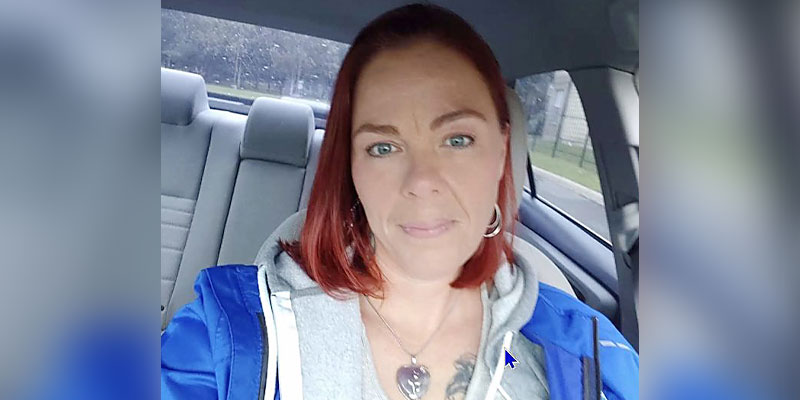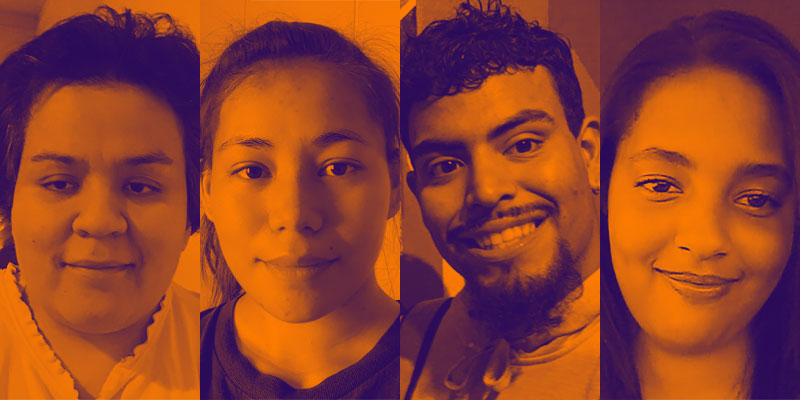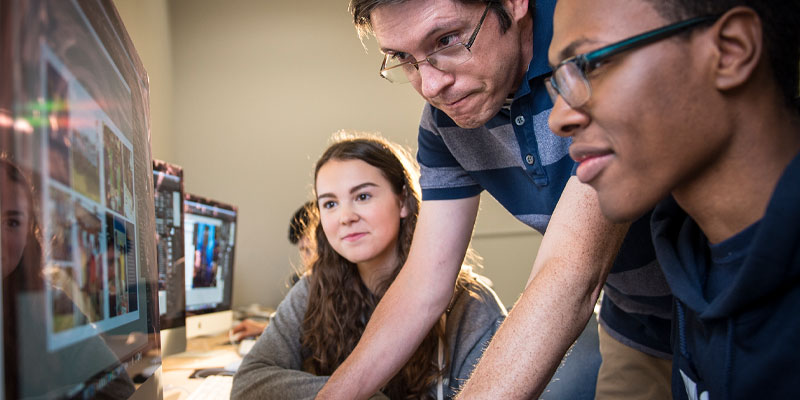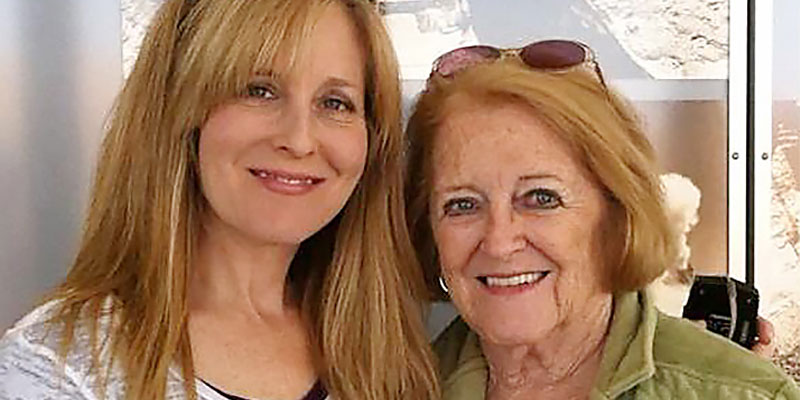
By Courtney Morris
Elizabeth Harvey fights cancer.
Although she has never received a cancer diagnosis or treated cancer patients, the San Jacinto College alumna fights by ensuring accurate patient data.
Oncologists, radiologists, and surgeons might snag the spotlight, but certified tumor registrars are critical to doctors and researchers worldwide. And Harvey, who works for the Texas Cancer Registry, has plenty of reasons to be passionate about cancer research: four immediate family members, in fact.
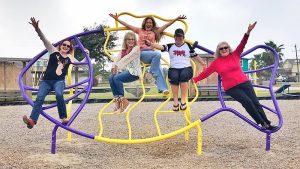
Elizabeth Harvey (middle) with her sisters. (Photos courtesy of Elizabeth Harvey)
19 Years in the Making
The journey toward a cancer data management career was winding, but once Harvey got there, the field was a perfect fit.
In 2014, her mother received a Stage 4 kidney cancer diagnosis. Harvey and her sisters cared for her until she passed away in 2016.
Losing someone so close brought Harvey to a crossroads in life. Thanks to her San Jac interior design training, she had built a successful two-decade career decorating model homes. On the side, she had also run a nonprofit animal rescue group.
Handling animals and arranging furniture both demanded physical energy, but these jobs also involved research. Harvey enjoyed analyzing design trends and writing policy and procedure manuals.
“I wanted a career that I felt was more brain and less brawn,” she said.
One of her sisters, then a San Jac administrator, helped her explore the College’s programs. Harvey settled on the cancer data management program, which blended her researching, writing, and analytical thinking skills.
“But the biggest thing was I felt it was a tribute to my mother,” she said. “This is a field where I could make a difference for people.”
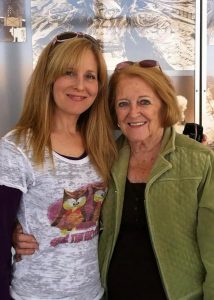
Elizabeth Harvey with her mother, Geraldine Harvey. (Photos courtesy of Elizabeth Harvey)
Preparing for Precision
In spring 2017, Harvey enrolled in the program. Since she lives near Austin, the online courses gave her flexibility to continue her design work during the day and study on evenings and weekends.
“I absolutely loved it,” she said. “At this point in my life, I was self-motivated, could schedule myself, and get everything done on time.”
Except for two coding classes that involved live webinars, all classes were on her own schedule. She learned how to create abstracts from patients’ medical records — recording demographics, diagnoses, treatments, and health status.
What Harvey didn’t expect were very precise coding rules and eight or more manuals to grasp, but adjunct faculty member Linda Kenyon said she had the drive to master the content. According to Kenyon, certified tumor registrars collect more than 200 data points on each patient, telling “each patient’s story of diagnosis and treatment.”
“You have to see that what you are doing is something bigger than yourself,” she said. “The data collected today will be used by physicians to explain what works and what to expect to the next generation of cancer patients.”
Telling Each Patient’s Story
Harvey’s job at Austin’s Texas Cancer Registry happened thanks to an extra-credit assignment. After meeting with TCR department heads for a report, she fell in love with the workplace.
“I inquired about positions, and they told me to send my resume,” she said. “They hired me two months before I finished the program at San Jac.”
Harvey earned her advanced technical certificate in December 2018, then passed her exam to become a licensed certified tumor registrar several months later. She started at TCR with solid skills thanks to her San Jac training.
“It really prepared me to sit for the exam and hit the ground running for my job,” she said.
As a program specialist, Harvey helps with quality assurance and team training. She writes and updates TCR’s cancer reporting manual and creates webinars about coding changes.
“A patient is diagnosed with cancer,” Harvey said. “They may have a report from the hospital that diagnosed them, a lab, and a surgery center. We take all the information from those different facilities, consolidate, and edit as needed for more accurate data.”
Afterward, TCR shares the information with a national registry. Doctors, researchers, and others in the cancer field worldwide use it to develop and fine-tune treatments.
“This is a career where everyone works hard to help each other,” Harvey said. “To make data meaningful, it has to be consistent, accurate, and timely.”
Finding Her Niche
Besides having a passion for details, Harvey pursued cancer data management for personal reasons.
In addition to her mother, Harvey’s father passed away from brain cancer. Both her older sister and twin sister have survived breast cancer.
While cancer is in her genes, Harvey has determined not to let cancer have the final word. She has found her niche as a tumor registrar.
“This is one way I can fight,” she said.

